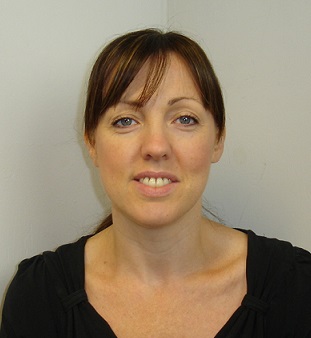Menopause Action Group promoting understanding and support
A South Wales Police Federation member says huge progress has been made in reducing the stigma around menopause – but there’s still lots of work to be done.
Temporary Detective Inspector Jo Jones said the work of the Force’s Menopause Action Group, and other staff networks, had helped to promote understanding and support of menopause in the workplace.
But she said there was still plenty of work to do to continue to raise awareness and break down barriers.
Jo, who is a member of the Menopause Action Group and wellbeing lead for the Force’s Gender Equality Network, was speaking ahead of International Women's Day.
“More people are aware of menopause and more conversations than ever are taking place, which can only be a good thing,” she said.
“It’s important to have those conversations with female colleagues of all ages female colleagues of all ages, and with male colleagues, because by doing that they will have a better understanding of what people are experiencing.

Temporary Detective Inspector Jo Jones is a member of the Menopause Action Group and wellbeing lead for the Force’s Gender Equality Network
“It can also be difficult for men to understand and appreciate, because they’re not going to experience what women have to go through.
“If we have these conversations then men will feel empowered as well because they will know how to help you.
“It’s not just a woman thing. I think it’s important everyone has an appreciation for it, then the conversation will continue and the stigmas will be reduced.”
The Menopause Action Group is actually two groups, Jo explained.
The first was for peer support where colleagues could share tips and guidance, and which anyone can be part of," she said.
The second was a Menopause Champion Group.
“These are colleagues who have volunteered for additional training to act as points of contact, as well as working with HR, reviewing the policies, procedures, and toolkits South Wales Police has in place.
“They will look at any reasonable adjustments and at whether we’re supporting our staff in the best way we can.
“In the groups, we’ve got senior leaders, HR representatives, officers and staff members. It’s a great blend of people”.
Jo said some of the work was informed by a Force-wide menopause survey in 2022.
“We used the information from that survey and we refreshed some of the policies, procedures and toolkits” she said.
Jo described a menopause drop-in session held in October as a ‘huge success’.
“We had more than 100 people attend, men and women,” she said. “For the men, it was for information to support family members and colleagues, which was great.”
“Now that the conversation is out there, it’s in the media more, people are not afraid to talk about menopause.
“It was always a taboo and a stigma but that is changing. It’s nothing like it was 10 or 20 years ago.
“It’s okay to say if you’re struggling with menopause symptoms, which can be extremely debilitating for some people.
“It’s being recognised and should be recognised in the workplace, especially around how to ensure colleagues with years and years of experience still feel valued and can continue to thrive in the organisation.
“We need to keep those conversations going and to continue to break down barriers.”
